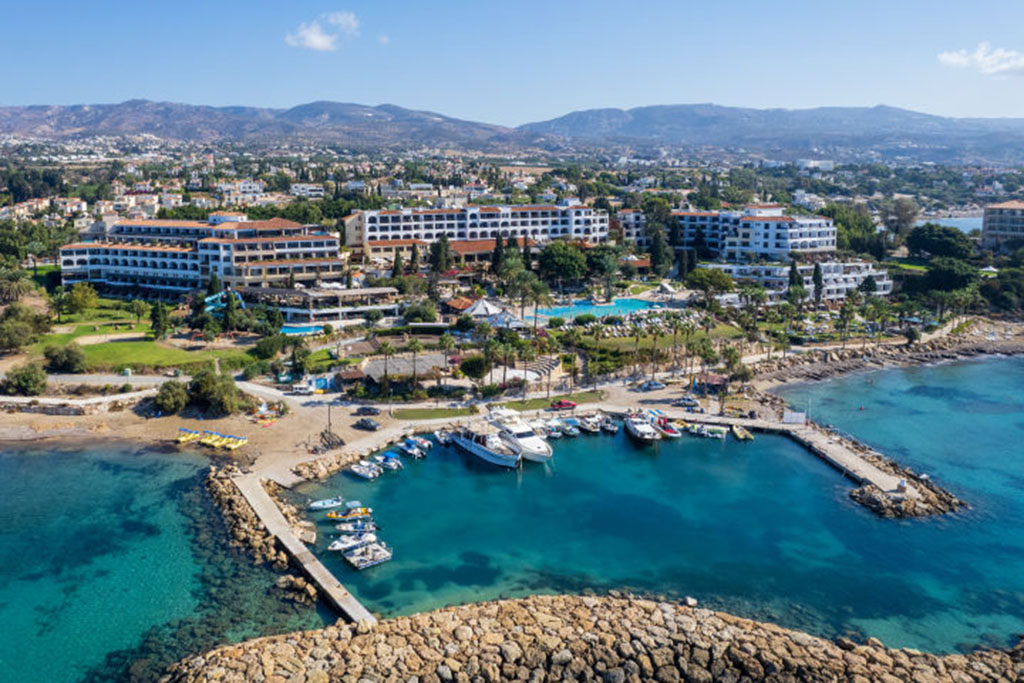Deputy Minister of Tourism Costas Koumis said the event offered a “first-class opportunity” to promote Cyprus both as a tourist destination and as a venue for international sporting occasions.
He said it was with “great satisfaction” that Cyprus would host the FIBA EuroBasket 2025 in Limassol, calling it “a very special event, which is expected to attract the interest of millions of viewers.”
According to the local organising committee, Cyprus is preparing to welcome a five-digit number of foreign visitors, a development expected to boost both tourism and local businesses.
Broadcast coverage from Limassol is set to reach, and possibly exceed, the 300 million viewers who tuned into EuroBasket 2022, while social media will further extend the event’s global visibility.
Koumis pointed to the arrival of five elite national teams and more than 80 athletes competing at the highest European and international level, alongside hundreds of visitors travelling to the island to follow the games.
Fleet capacity has grown by 50 per cent over the past decade, showing both resilience and strategic adaptation to shifting trade patterns.
According to Greek news outlet Newmoney, the sector now accounts for 31.27 per cent of the global oil tanker fleet and 25.32 per cent of bulk carriers, while also holding 22.65 per cent of the liquefied natural gas fleet.
In addition, Greek shipping represents 15.79 per cent of the chemical and petroleum product fleet, 11.46 per cent of LPG carriers and 8.92 per cent of container ships.
General manager of Alion Beach and Nissi Park, Panicos Michael, together with Nissi Beach operations manager George Philippou, told the Cyprus hoteliers association’s (Pasyxe) August edition of Xenodochos that the group’s guiding principle remains the vision of its late founder, Pavlos Pavlakis.
“The philosophy was and remains authentic hospitality and the feeling of ‘home away from home’,” they said.
Moreover, the managers explained that the upgrade plan is revised every year, shaped by guest feedback, design trends, technology and environmental priorities.
“As a matter of policy, there is a continuous, dynamic upgrade programme,” they noted.
Fanos Leventis, general secretary of the Cyprus association of hospitality venues (Pasika), and president of the association of hospitality sector owners (Osika) Neophytos Thrasyvoulou, outlined this year’s summer traffic in leisure centres, while also pointing to new trends and challenges for the sector, as noted by InBusinessNews.
Leventis said that the overall picture this summer was encouraging, with Cypriots once again visiting the coastal areas of Famagusta, Paphos and Larnaca, despite roadworks that caused inconvenience in the Finikoudes area.
Mountain resorts, he added, had initially recorded weak numbers, partly due to Cypriots travelling abroad and the wildfires.
However, traffic surged during the August 15 holiday period in resorts such as Platres and Kakopetria, and remained strong afterwards.
The 2025 report, published earlier this summer, introduced a simplified SDG Index based on 17 headline indicators.
Since 2015, Cyprus has improved by 4.3 percentage points, compared with an average rise of 5.1 points across the European Union.
Earlier this year, the European Sustainable Development Report (ESDR) also ranked Cyprus near the bottom, 32nd out of 34 countries with a score of 62.7.






Click here to change your cookie preferences